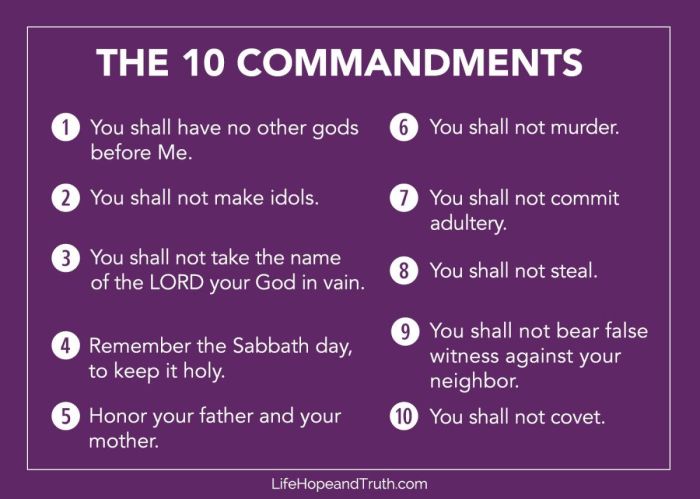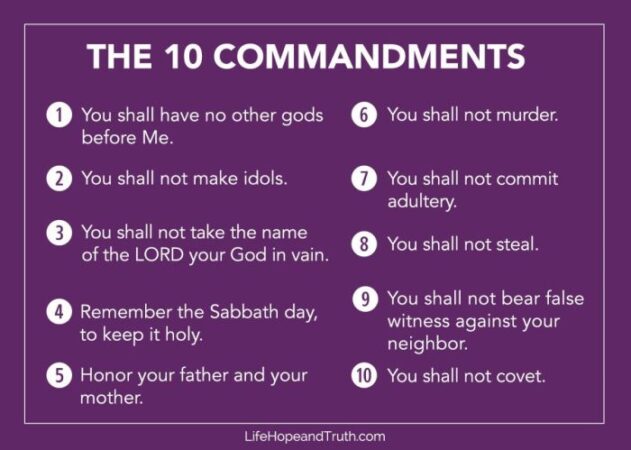What are the Laws of Moses? These ancient laws, found in the Torah, have shaped the Jewish faith and influenced countless cultures throughout history. They provide a glimpse into the societal norms, religious beliefs, and ethical values of the Israelites, offering insights into their daily lives and their relationship with God.
The Laws of Moses, also known as the Mosaic Law, were revealed to Moses on Mount Sinai, according to Jewish tradition. These laws cover a wide range of topics, from religious rituals and moral codes to legal pronouncements and social regulations. Understanding the historical context and the process of transmission of these laws is crucial to appreciating their significance and impact.
Key Themes and Principles

The Laws of Moses, also known as the Torah, are a collection of laws and teachings that form the foundation of Jewish religious and legal tradition. These laws encompass a wide range of topics, from religious practices to social and ethical conduct. They reflect a deep concern for justice, mercy, and righteousness, shaping the moral and legal framework of Jewish society for centuries.
Justice, Mercy, and Righteousness
The concept of justice is central to the Laws of Moses. The principle of “eye for an eye” (Exodus 21:24), often misinterpreted as advocating for revenge, emphasizes proportionate retribution. It underscores the importance of fairness and accountability, ensuring that consequences are commensurate with the offense committed. However, this principle is tempered by the concepts of mercy and righteousness, which encourage forgiveness and compassion. The laws also emphasize the protection of the vulnerable, including widows, orphans, and foreigners.
The Concept of “Eye for an Eye”
The phrase “eye for an eye” is often used to illustrate the concept of retributive justice. It suggests that punishment should be proportional to the crime. However, it’s crucial to understand the context in which this principle appears. The Torah emphasizes the importance of restraint and forgiveness, even in the face of injustice. For instance, the laws also state, “You shall not take revenge or bear a grudge against anyone among your people” (Leviticus 19:18). This suggests that while justice is important, it should not be pursued with vengeance or hatred.
Ethical and Social Implications
The Laws of Moses address various ethical and social issues, including slavery, theft, and murder. While the Torah allows for slavery, it sets specific guidelines to ensure the humane treatment of slaves. For example, slaves are to be treated with respect, given rest days, and allowed to redeem themselves. Theft is strictly prohibited, and penalties for theft vary depending on the severity of the crime. Murder is considered a grave sin, and the death penalty is prescribed for intentional killing. These laws aim to establish a just and equitable society, promoting peace and harmony among its members.
Social and Religious Implications

The Laws of Moses, also known as the Torah, profoundly shaped the social structure and daily life of the Israelites, serving as the foundation for their religious beliefs and practices. These laws, recorded in the first five books of the Hebrew Bible, provided a comprehensive framework for living, covering aspects from personal conduct to communal organization and religious observances.
Impact on Social Structure
The Laws of Moses established a social order that emphasized justice, fairness, and compassion. They Artikeld specific regulations regarding family relationships, property rights, and the treatment of the vulnerable, including widows, orphans, and the poor. For example, the laws mandated the return of lost property, prohibited usury, and required the sharing of harvest with the poor. These provisions aimed to create a society where everyone, regardless of their social standing, could thrive.
Role in Shaping Religious Beliefs and Practices
The Laws of Moses were intricately woven into the fabric of Israelite religious life. They prescribed rituals and ceremonies, such as the Sabbath observance, the Passover celebration, and the annual pilgrimage to Jerusalem. These practices served as tangible expressions of their faith and fostered a sense of communal identity. The laws also emphasized the importance of ethical conduct, emphasizing principles like loving your neighbor, honoring your parents, and avoiding idolatry. These moral guidelines helped to shape the Israelites’ understanding of God and their relationship with him.
Comparison with Other Ancient Legal Codes, What are the laws of moses
The Laws of Moses share similarities with other ancient legal codes, such as the Code of Hammurabi and the Laws of Eshnunna. All of these codes address issues related to property rights, personal injury, and social order. However, the Laws of Moses stand out for their emphasis on ethical principles and their close connection to religious beliefs. Unlike other codes, which primarily focus on legal sanctions, the Laws of Moses emphasize the importance of justice, compassion, and righteousness, reflecting the Israelites’ belief in a God who cares for his people.
Ultimate Conclusion: What Are The Laws Of Moses

The Laws of Moses continue to be a subject of study and debate, with scholars and theologians grappling with their relevance and application in modern society. While some aspects of the laws may seem archaic or outdated, their core principles of justice, mercy, and righteousness remain timeless and continue to resonate with people across different cultures and faiths.
Commonly Asked Questions
What is the significance of the Ten Commandments?
The Ten Commandments are a fundamental part of the Laws of Moses, representing the core principles of Jewish faith and morality. They Artikel basic ethical guidelines for human behavior, including prohibitions against murder, theft, and idolatry.
Are the Laws of Moses still relevant today?
While some specific laws may not be directly applicable in modern society, the principles underlying the Laws of Moses, such as justice, compassion, and responsibility, remain relevant and provide a framework for ethical decision-making.
How do Jewish scholars interpret the Laws of Moses?
Jewish scholars have interpreted the Laws of Moses throughout history, applying them to different contexts and challenges. Their interpretations have evolved over time, reflecting changing societal norms and cultural understandings.
